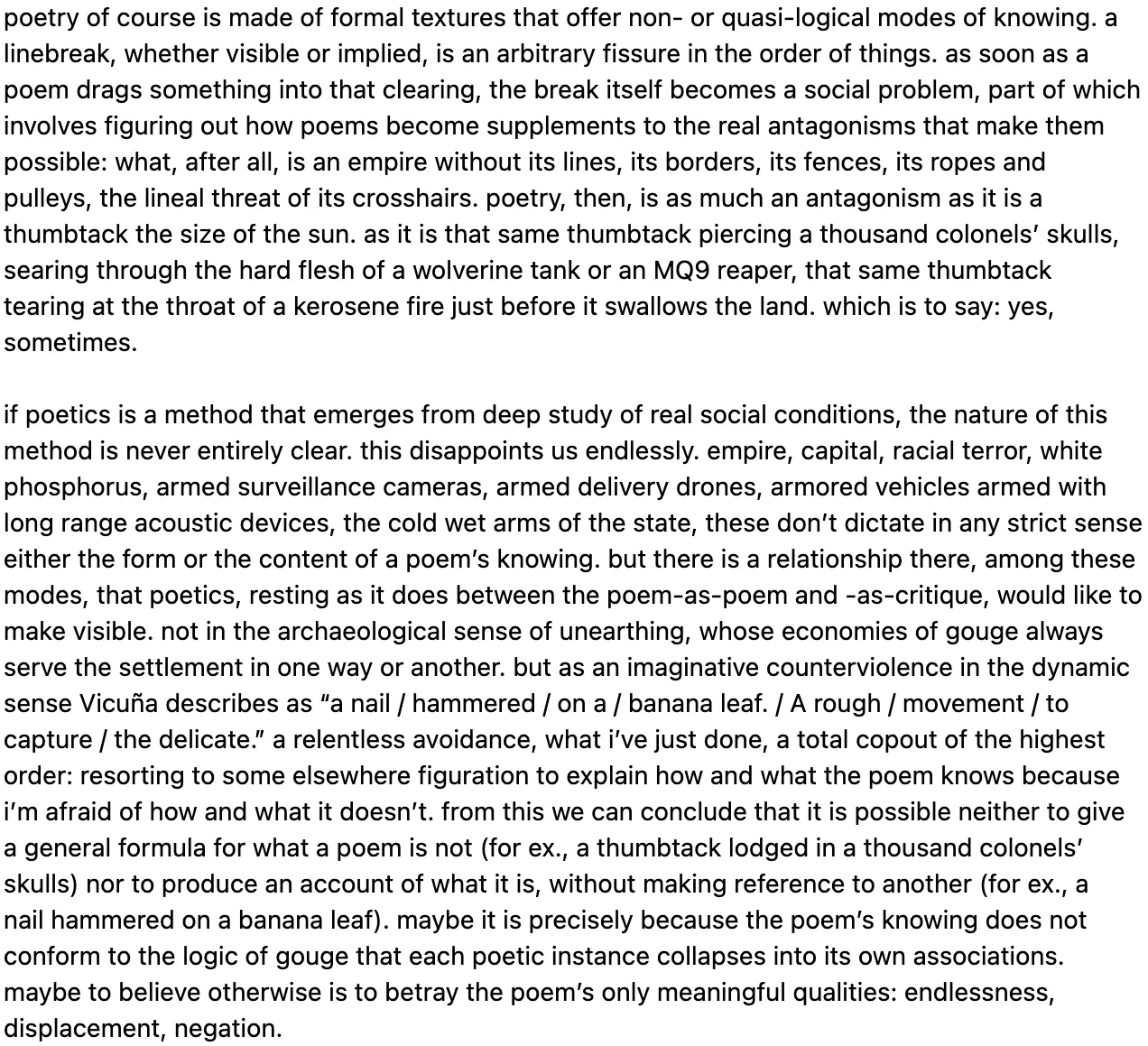ballot or the
i am patiently explaining to the president
certain passages from kant’s metaphysics of morals,
in particular the passages where he outlines
the power of practical reason
to constrain military violence.
i am not convinced he understands me,
but i keep going, zip-tied to my grin,
for years, decades even, til the floor
splinters and the ceiling buckles,
and the trees outside are all on fire.
til long after we’re both dead as shit.
below us, a centipede
wrangles the crown molding;
above, evening arrives.
fragment towards an unidentified poetics

poetry of course is made of formal textures that offer non- or quasi-logical modes of knowing. a
linebreak, whether visible or implied, is an arbitrary fissure in the order of things. as soon as a
poem drags something into that clearing, the break itself becomes a social problem, part of which
involves figuring out how poems become supplements to the real antagonisms that make them
possible: what, after all, is an empire without its lines, its borders, its fences, its ropes and
pulleys, the lineal threat of its crosshairs. poetry, then, is as much an antagonism as it is a
thumbtack the size of the sun. as it is that same thumbtack piercing a thousand colonels’ skulls,
searing through the hard flesh of a wolverine tank or an MQ9 reaper, that same thumbtack
tearing at the throat of a kerosene fire just before it swallows the land. which is to say: yes,
sometimes.
if poetics is a method that emerges from deep study of real social conditions, the nature of this
method is never entirely clear. this disappoints us endlessly. empire, capital, racial terror, white
phosphorus, armed surveillance cameras, armed delivery drones, armored vehicles armed with
long range acoustic devices, the cold wet arms of the state, these don’t dictate in any strict sense
either the form or the content of a poem’s knowing. but there is a relationship there, among these
modes, that poetics, resting as it does between the poem-as-poem and -as-critique, would like to
make visible. not in the archaeological sense of unearthing, whose economies of gouge always
serve the settlement in one way or another. but as an imaginative counterviolence in the dynamic
sense Vicuña describes as “a nail / hammered / on a / banana leaf. / A rough / movement / to
capture / the delicate.” a relentless avoidance, what i’ve just done, a total copout of the highest
order: resorting to some elsewhere figuration to explain how and what the poem knows because
i’m afraid of how and what it doesn’t. from this we can conclude that it is possible neither to give
a general formula for what a poem is not (for ex., a thumbtack lodged in a thousand colonels’
skulls) nor to produce an account of what it is, without making reference to another (for ex., a
nail hammered on a banana leaf). maybe it is precisely because the poem’s knowing does not
conform to the logic of gouge that each poetic instance collapses into its own associations.
maybe to believe otherwise is to betray the poem’s only meaningful qualities: endlessness,
displacement, negation.